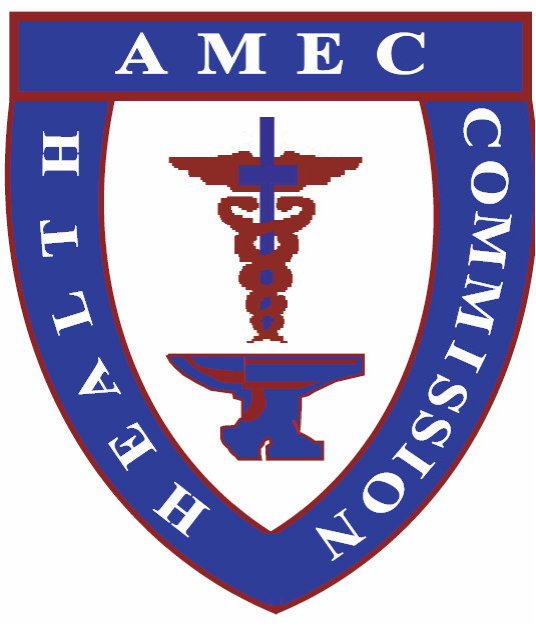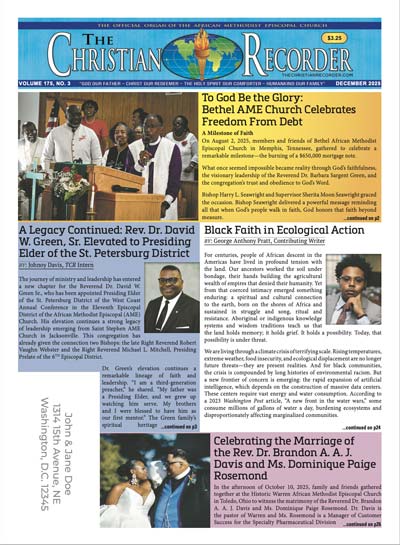“He heals the brokenhearted and binds up their wounds.” – Psalm 147:3
Each June, PTSD Awareness Month offers an opportunity for the faith community to pause, learn, and bear witness to the pain of those among us who carry invisible wounds. Post-Traumatic Stress Disorder (PTSD) is a condition that affects not only minds and bodies but hearts and spirits. As the Body of Christ, we are called to be a refuge for the wounded and a voice of compassion and hope for those who suffer silently.
Understanding the Struggle
PTSD is a mental health condition that arises after someone has experienced or witnessed a terrifying or deeply distressing event. Though many associate PTSD with military combat, it can also affect survivors of abuse, natural disasters, gun violence, racial trauma, medical emergencies, and other life-threatening experiences.
Common symptoms include:
- Flashbacks, nightmares, or intrusive thoughts
- Avoidance of reminders or places
- Anxiety, hypervigilance, and emotional numbness
- Feelings of guilt, shame, or detachment from others
For many, these symptoms are not just emotional—they are spiritual. Survivors often wrestle with questions like: Where was God? Why did this happen to me? Can I ever feel whole again?
A Ministry of Presence and Understanding
Scripture teaches us to “carry each other’s burdens” (Galatians 6:2). This includes the burdens of trauma. As faith leaders, congregants, and spiritual caregivers, we must learn to recognize the signs of PTSD, respond with wisdom, and refer individuals to the help they need.
Trauma-informed ministry means cultivating:
- Safety – emotional, physical, and spiritual
- Trust – keeping confidence and practicing consistency
- Compassion – listening without judgment
- Empowerment – reminding people they are not defined by their trauma
When we integrate these principles into our preaching, teaching, pastoral care, and church life, we reflect the heart of Christ—the Great Physician who touched the untouchable and healed the broken in body and spirit.
Breaking the Silence in Sacred Spaces
Sadly, mental health struggles are still stigmatized in many churches. Too often, people are told to “just pray it away” or made to feel weak for needing help. But faith and therapy are not in conflict—they are companions on the journey to healing.
The church must be a place where:
- Tears are welcomed and not rushed away
- Survivors are believed and not blamed
- Counseling is encouraged alongside prayer and Scripture
- God’s love is preached not only as a concept but embodied in how we treat one another
Jesus said in Luke 4:18 that He came “to proclaim freedom for the prisoners and recovery of sight for the blind, to set the oppressed free.” This includes those oppressed by the lingering effects of trauma.
How Your Church Can Respond
During PTSD Awareness Month, your faith community can:
- Host a mental health Sunday with testimonies and resources
- Partner with Christian counselors or therapists for workshops
- Train ministry leaders in trauma-informed pastoral care
- Offer confidential prayer and referral services
- Create sacred spaces for rest and reflection
A Theology of Healing and Hope
God is not distant from the wounded. In fact, Isaiah calls Jesus “a man of sorrows, acquainted with grief” (Isaiah 53:3). He enters into our suffering and offers resurrection—not just in eternity, but in the here and now.
For those living with PTSD, healing may be a journey. It may come through professional therapy, medication, community support, spiritual practices—or a combination. The role of the church is not to force healing but to walk faithfully alongside people as they heal, affirming: You are not alone. God sees you. We see you. And healing is possible.
Let this month be a call to the church: to open our eyes, soften our hearts, and become places where healing flows freely and hope is restored.
If you or someone you know is struggling with trauma, reach out to a trusted mental health professional or faith-based counselor. You are not alone, and help is available







Thank you yes i have been through still going through lufe threatung illnesses jusr burnt out now husband back in hospital geabdaughtee sister with life threating illnesses my own cancer mothers death cancer brother i dont want to hold onto bitterness but lost count of the times we did not know if my grandaughter would survive
Muktipky times hisband hosputal afrer heaet by pass still in hosputal now my fathers alzimers
6 months aftee my mither death i got grade 3 breasr cancer withij that time too looking after my father after just finishing chemo was told by paster i was angry and needed physchatrust no comoassion becayse i couldnt cope wirh grief was pushed away with no understanding
I love god i did tell him i was angry repeated repentance of any anger against anyobe i dont want to hokd on to bitterness but i dont feel safw anynore in cgurch when im feeling so vunerable was told i dudnt teust god enough now i am studying gods word and have a mental heakth team i hioe to work on getting healing but i dobt feel safe anymore in church just judged
Im doing the bezr in eceryway i kniw how but its cauaed shame and fear to open up to other christians im so tired of being judged cobdemned because i struggling with panuc atracks i am takig meducation jyst dont know how im going to carw fir my husband at home any morw muktipky falls over 4 years
Dictors have been good his meducation has been changed but im burnt out i dont feek safe to be vunerable in church anymore its caused more damage to hiw i see acceot mysekf as not having eniygh faith i xabt take more shane when im so broken so i am stydying gods word praying usung mental heakth team but again have avouded church as i cant cope wuth tge rehection of being judged anymore
So im at home now dont kniw what will happen to ongoing care for husband just burnt out i cant physucalky hokd him up no matrer how much i try after muktipky fakss including me hurtibg my back i feek stuck alone and just need to feek in a safe placd where i dont have to oretend anymore kord have mercy on my soul i chiose to forgive but dibt trust enough to be open hinest vuberabke anynore through being
Realky hurt i waz told i was negative when i had just come from nearly liosing my grandaughter
This pkace helps me to be abke ti be vunerable and truthful
Thank you